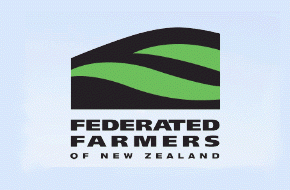
By Willy Leferink*
 On 31 May 2014, 90% of New Zealand’s dairy cattle will have been excluded from waterways with 100 percent excluded from wetlands.
On 31 May 2014, 90% of New Zealand’s dairy cattle will have been excluded from waterways with 100 percent excluded from wetlands.
I keep saying dairy cattle because not all cattle are dairy, especially the ones you see on television.
The Sustainable Dairying Water Accord is about the future but a danger we create with it, is the impression that better water quality is all down to dairy farmers. It isn’t.
We need councils to improve waste water plants struggling to meet the demands of 1.6 million households and almost 500,000 businesses.
While our non-dairy colleagues in the wider primary are doing better we need the whole community on board and Lake Rotorua’s stunning improvement proves it works. A few years ago that lake was so poor a target Trophic Index Level of 4.2 was set without a time limit. It would take decades to ‘clean up’ experts said. Last year Lake Rotorua registered 4.1 as part of an improving trend.
This improvement was due to all farmers fencing and planting, councils getting on top of sewerage and the whole community stepping up.
Rotorua’s success makes me leery about the Selwyn Waihora zone committee in Canterbury moving towards restricting farming around Te Waihora.
It is restrict first, expect measurable improvement in 2072. Yes 2072.
There are primary school students right now who will finish high school, graduate after higher education, have a full career and a family and be retired well before 2072.
This highlights that ‘our’ water quality standards aren’t ours but, unbelievable as it sounds, they are Canada’s.
We have Canada’s because some bright spark thought they would be too expensive to develop here and all water is the same, right? Actually no it isn’t as the Hawke’s Bay Regional Council has found out. That is one council who knows what core council services truly means.
The truth is we seem to care more for Rainbow Trout than for our own native fish, which seem by some to be a mere food source for introduced trout.
The silence from some fresh water ecologists on this is deafening.
From what I have heard Hawke’s Bay’s ground breaking work has the real potential to turn our entire conversation about water. We have to because Canadian water is fuelling the massive regulation industry we now have.
Local government employs 18,370 people in regulatory and administrative roles alone. That is up on 13,630 in 2002.
This does not include the army of advisors or consultants from the likes of Boffa Miskell, Opus or any number who have carved out a nice little earner.
Instead of enabling private enterprise we are being controlled and blocked by regulations and regulators.
But it isn’t fair just to stick it to local government. Parliament creates the regulations it passes down to local government leaving it as the fall-guy.
Outside of the good regional councils, others are knee-jerking their way to “quick and dirty” interim limits around the National Policy Statement on fresh water. That is cart before the horse material and risks wrecking our economy so those young people water is supposedly being improved for will be able to swim in it ‘one day,’ while on holiday from Australia.
So where is the common sense?
A consent hanging in a cowshed does not make a farmer better compliant than not having the most recent version up there. Yet that sees farmers pinged for ‘minor non-compliance’.
Regulation needs to be at the right level. It needs to be clear, realistic and achievable. It must enable rather than stifle innovation or creative individuality.
Federated Farmers first solution is to make sure the Resource Management Act has real economic tests in it. Thanks to our experience in Horizons Regional Council around the dreadful One Plan, work on that is underway within government. Yet the RMA desperately needs compensation provisions to ensure private property rights are respected too.
The Sustainable Dairying Water Accord is a step in the right direction but dairy farmers cannot do it all alone without the rest of the community.
Exhibit A is that stunning turnaround in Lake Rotorua where the community truly worked as one.
As dairy has firmly put its arm up to be part of a collective solution, wouldn’t be great to get the rest of the community got in the same Waka with us.
-------------------------------------------------------------------
Willy Leferink is Federated Farmers Dairy chairperson.
2 Comments
Actually no it isn’t as the Hawke’s Bay Regional Council has found out. That is one council who knows what core council services truly means.
Willy would you like to tell us what you mean when you make this statement? - others wish to know.
A consent hanging in a cowshed does not make a farmer better compliant than not having the most recent version up there. Yet that sees farmers pinged for ‘minor non-compliance’.
Is it an offence not to display an up-to-date vehicle license sticker, punishable by a $150.00 fine if apprehended by the police?
Umm... I got caught for exactly what you are describing Stephen - not displaying an up to date vehicle license sticker. It was sitting at home - as it had been for the previous 2months due to miscommunication between me and the MOTH. On presentation of the valid sticker the following day, the charge was dropped. That doesn't happen with not displaying resource consents in the cowshed.
We welcome your comments below. If you are not already registered, please register to comment
Remember we welcome robust, respectful and insightful debate. We don't welcome abusive or defamatory comments and will de-register those repeatedly making such comments. Our current comment policy is here.